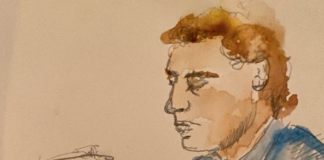- Dark speak easy part one - 18th February 2026
- X marks the spot again - 17th February 2026
- Wordy again part three - 16th February 2026

During 23 years with the BBC, and a 40 year journalistic career (when he was trained to use clear and simple language, avoiding jargon), our Editor, Welshman Phil Parry has covered innumerable elections (indeed his first television interview was with a Welsh MP during the 1987 campaign), and they have all been (by and large) CLEAN, but now comes more evidence that in other parts of the world they are not, and in one, mobsters were even handing out €50 notes at polling booths, so that people would vote the ‘right’ way!

Whatever the result on July 4, we can at least console ourselves with the fact that this election will have been (largely) clean (notwithstanding today’s betting scandal).
Indeed that has been the case in every election I have covered – and I have reported on almost every one since 1987.
I have NEVER come across evidence of money passing hands in envelopes to ‘buy’ votes (I’m sure it happened, but I have never seen it).
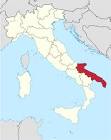
That (allegedly) has not been the case, though, in other parts of the world. In the heel of Italy it appears to be particularly bad, with organised crime gangs getting their tentacles into political parties.
A mobster was stationed outside some polling booths handing out €50 notes if voters put their tick in the ‘correct’ box.
Describing a candidate who had allegedly paid for votes, another mobster said in a wire-tapped phone call: “Once she is on the council we can do what the fuck we want”.
Meanwhile we heard that a recent election in Bulgaria had more vote-buying attempts than ever before, even at a cost apparently of €75 for one vote (a threefold increase compared to 2021).

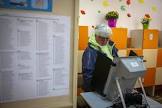
Vote-buying (real and attempted) has impacted Bulgaria for decades and mainly affects the country’s poorest communities.
Indeed, over 30 per cent of Bulgarians vote in polling stations where there is a risk of ‘controlled’ voting, a study by the investigative foundation Anti-Corruption Fund reads, and so far, the police have launched 48 criminal investigations into vote-buying.

In Serbia the alleged problem is no less acute, and it isn’t simply vote-buying either.
There the ruling Serbian Progressive Party (SNS) gained an unfair advantage in snap parliamentary elections through media bias, the improper influence of President Aleksandar Vucic, and voting irregularities such as vote buying.
In this month’s elections in South Africa there have been numerous worrying incidents, and vote-buying came high on the list.
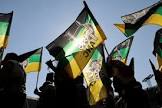
A new party took on the African National Congress (ANC), gaining 15 per cent of the vote, and the results have been humiliating for the ANC, as it lost its outright parliamentary majority for the first time in 30 years.
In sub-Saharan Africa there appears to be a particular issue, so that vote buying has emerged as an integral part of election campaigns.
Research shows that poor voters are significantly more likely to be targets of vote buying than wealthier voters.
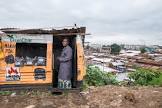
This effect increases when elections are highly competitive. Thus, poverty seems to be an important source of vote buying in Africa and has major implications for the way electoral democracy operates.
It isn’t simply as brazen as stuffing money into brown envelopes, or handing out €50 notes at polling booths either.

It can be promises of major (but economically useless, and wasteful) schemes in certain areas to buy votes there. In America this is known as ‘pork barrel rolling’.
But the other kind is more difficult to spot – secret recording is needed to secure the evidence.
Or in the case of the police in Italy securing a wire-tapped phone conversation where a crook says: “Once she is on the council we can do what the fuck we want”…

Some of the political stories Phil has covered over the years, as he was gripped by the rare neurological condition Hereditary Spastic Paraplegia (HSP), have been released in a major book ‘A GOOD STORY’. Order it now!
Regrettably publication of another book, however, was refused, because it was to have included names.
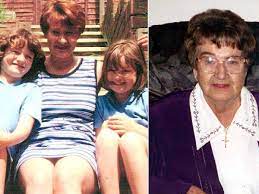
Tomorrow is the 25th anniversary of one of the worst murders in the history of the force concerned – South Wales Police (SWP) (the largest in Wales) – when four people were bludgeoned to death, so Phil recounts some of the details.









